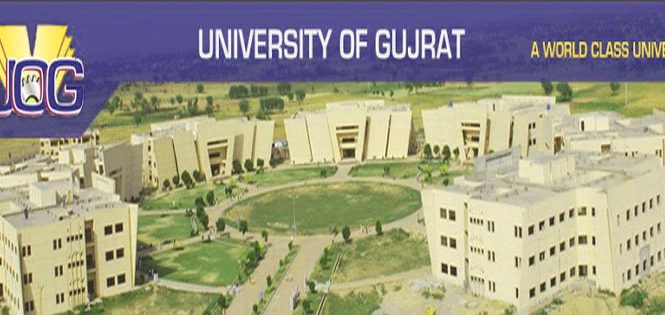M Phil Mass Communication important eBooks Dear Students of M Phil Mass Communication , University of Gujrat, Pakistan. Students of M Phil Mass Communication have to explore a variety of subjects and topics. It is not possible to buy books for every topic so teachers have prepared notes and other helping study material for students on different topics. It is commonly quite difficult and hassle for lecturer to share notes as well as for students to get the notes and other study material. You will always find a huge students’ rush on photocopier shop to get notes. Now masscommunicationtalk.com has maintained almost all the notes and study material for M Phil Mass Communication students. You can explore all the notes and study material online here. You can explore already uploaded notes as well as you can add your own notes. If you have developed your own notes or you wanted to […]
PROPAGANDA COMES TO THE UNITED STATES
Americans first began to give serious consideration to the power of propaganda in the years following World War I. The war had demonstrated that modern propaganda techniques could be used with startling effectiveness to assemble massive armies and to maintain civilian morale through long years of warfare. Never before had so many people been mobilized to fight a war. Never before had so many died with so little to show for it over such a long period of time and under such harsh conditions. Earlier wars had been quickly settled by decisive battles. But in this war, massive armies confronted each other along a front that extended for hundreds of miles. From their trenches they bombarded each other and launched occasional attacks that ended in futility. Harold Lasswell, a political scientist who developed several early theories of media, expressed considerable respect for the propaganda efforts marshaled in the cause of […]
Philosophy of Communication
Philosophy of Communication Whenever people communicate, questions of right and wrong arise. People always wonder if the statement was said right or not, they scrutinize others statement more than their own. Ethical communication is fundamental to responsible thinking, decision making, and the development of relationships and communities within and across contexts, cultures, channels, and media. Moreover, ethical communication enhances human worth and dignity by fostering truthfulness, fairness, responsibility, personal integrity, and respect for self and others. Unethical communication threatens the quality of all communication and consequently the well-being of individuals and the society in which we live. We should be committed to practicing the following principles of ethical communication: Truthfulness, accuracy, honesty, and reason as essential to the integrity of communication. This is the basis of proper ethical communication. Everything begins with honesty. I believe communication would be of no value in most cases if it were not for […]
Scope and Importance of Development Support Communication in Pakistan
Analyze the scope and importance of Development Support Communication in Pakistan. What are the factors for successful Development Support Communication? The practice of Development Support Communication, DSC, is a multi-sectoral process of information sharing about development agendas and planned actions. It links planners, beneficiaries and implementers of development action, including the donor community. It obligates planners and implementers to provide clear, explicit and intelligible data and information about their goals and roles in development, and explicitly provides opportunities for beneficiaries to participate in shaping development outcomes. It ensures that the donor community is kept constantly aware of the achievements and constraints of development efforts in the field. Development Support Communication makes use of all available structures and means of information sharing. Therefore it is not limited to mass media alone. It also uses both formal group and non-formal channels of communication, such as women’s and youth associations, as well as […]
Differentiate it from the terms Development Communication and Development Journalism
Define the term Development Support Communication and differentiate it from the terms Development Communication and Development Journalism. Development Communication Development Communication has been alternatively defined as a type of marketing and public opinion research that is used specifically to develop effective communication or as the use of communication to promote social development. Defined as the former, it often includes computerized linguistics analysis of verbatim responses to qualitative survey interviews and may, at times also involved consumer psychological “right brain” (emotional) research techniques. Defined at the latter, it refers to the practice of systematically applying the processes, strategies, and principles of communication to bring about positive social change. As most providers of “communication development” research use proprietary approaches that cannot be elaborated upon without revealing proprietary trade secrets, the remainder of this article describes the latter definition. “the art and science of human communication linked to a society’s planned transformation from […]
Various Steps involved in evaluating a Development Support Communication Campaign
Define evaluation and explain various steps involved in evaluating a DSC Campaign. Evaluation Words themselves do not carry the same meanings through time and space. A word which gave a specific meaning a hundred years ago may not give the same meanings today – for scores of reasons. Similarly meanings of same words are changed at some distance. A verbal message which once stood for certain meanings, may not always stand for the same meanings because static meaning evaluation does not hold in any language. Various steps involved in evaluating a DSC Campaign The term can be described as development planning and implementation in which adequate action is taken of human behavioral factors in the design of development project and their objectivities. It addresses development planning and the plan of operation for implementation. It (DSC) stands for linking all agencies involved in the planned development works such as political executives, […]
